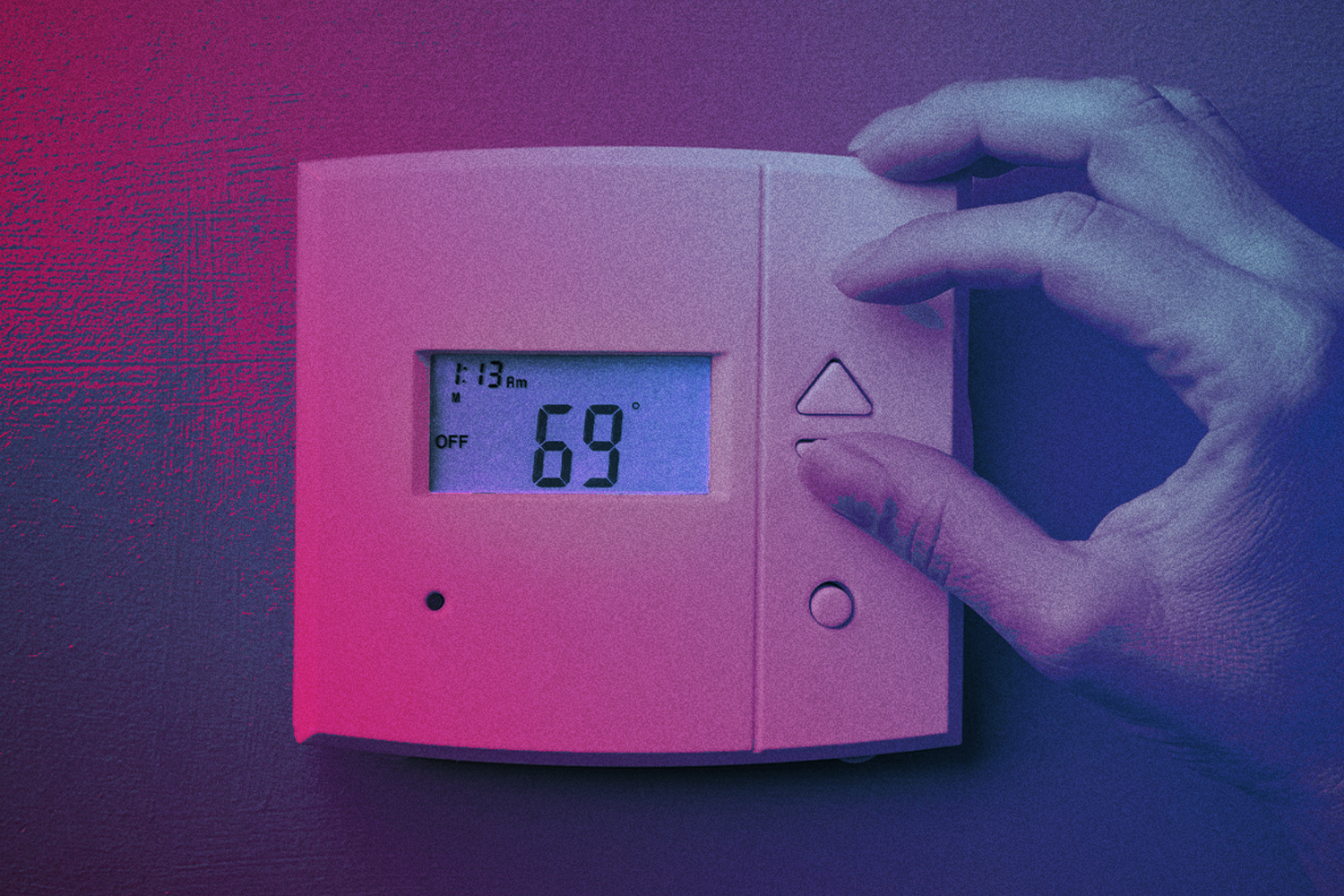There are many wonderful things about sharing a bed with a romantic partner — the intimacy of falling asleep in each other’s arms and the ease with which morning sex can be seamlessly initiated, to name a few. You haven’t known true love, however, until you’ve been rudely awakened by the sound of your partner’s snoring, then spent the rest of the night staring down that loudly slumbering angel and hating them with every fiber of your being.
Naturally, nightly bouts of snoring-induced hatred coupled with sleep deprivation isn’t exactly a recipe for a happy, healthy relationship. Snoring is a relatively minor but extremely common annoyance that can have a big impact on relationships, and it’s something couples deal with all the damn time.
“Snoring is a common relationship complaint amongst couples who cohabitate,” says Susan Winter, bestselling author and relationship expert, adding that this issue is particularly common in relationships in which one partner, usually the non-snorer, identifies as a light sleeper while their lawnmower of a bed partner slumbers heavily and blissfully undisturbed. “To the light sleeper, this feels ‘unfair,’” says Winter. “When their hard-won sleep is interrupted by a snoring mate, anger and resentment begin to fester.”
This dynamic may be particularly prevalent in hetero relationships, and if you’re a man, it’s probably your fault — sorry guys. “For the most part, men snore more often than women,” says Dr. Peter Polos, MD, PhD, FCCP, FAASM, sleep medicine specialist and a sleep expert for Sleep Number. “One reason is their airways are larger, which leaves more space at the base of the tongue and back of the throat for air to move and vibrate.” Your girthy man necks may also be part of the problem. “A larger neck size is associated with a narrower upper airway,” says Polos. “Because of this, the tongue slips further into the back of the throat, causing more vibration and thus, more snoring.”
Meanwhile, “Women tend to be lighter sleepers,” says Victoria Wildhorn, Sleep Health Content Specialist at Mattress Clarity. “If their counterpart is a heavy snorer, it can interrupt their own sleep pattern and result in drowsiness, moodiness and frustration.”
Between men’s increased tendency to snore and women’s penchant for light sleeping, there’s a strong possibility snoring is a problem in a heterosexual bedroom near you — perhaps even your own.
Of course, snoring can affect anyone of any gender, as well as their bed partner. Regardless of gender or whether you’re the snorer or the snoree, here’s how to stop a nighttime annoyance from poisoning your relationship during waking hours.
What causes snoring?
It’s important to note that if you are the snorer in your relationship, it’s not actually your fault, per se. Your partner is most likely aware of this, which probably only makes the whole situation worse because they know they are getting mad at you for something that is largely out of your control.
“Snoring is caused by the vibration of soft tissue in the back of the throat,” says Polos. “As we inhale and exhale, air passing over the soft palate, uvula and soft tissues vibrates, producing the sounds of snoring.” There are a number of health and lifestyle factors that can contribute to a snoring problem, from weight and preferred sleeping position to allergies and, yes, the girth of your neck.
Snoring can also be a sign of more serious health complications, like obstructive sleep apnea, a common sleep disorder that causes intermittent airflow blockage. “Not all snorers suffer from OSA, but if you or your partner’s snoring seems quite loud and excessive, it’s best to see a doctor so you can treat your condition if needed,” says Wildhorn.”
Even if snoring is not rooted in an underlying medical condition, however, it can still contribute to various other health issues.
“There are many negative effects of snoring. For one, it can awaken the sleeper, thereby fragmenting their sleep,” says Polos. “Disturbed sleep is associated with cognitive, metabolic and immune disturbances, so it’s important that snoring be addressed to improve your overall health and wellness.”
How can snoring affect your relationship?
If snoring can disturb your own sleep, it can obviously interfere with your partner’s as well. Not only will this cause sleep deprivation and all the unpleasant mental, emotional and physical side effects that come with it, but there’s also a non-zero possibility your sleep-deprived partner might be building up some resentment towards you and your obstructed airways.
“Clinical studies have shown that people who share a bed with chronic snorers achieve less total sleep time and have significantly reduced sleep quality, compared to people who don’t sleep with a snoring partner,” says Dr. Chelsie Rohrscheib, head sleep specialist and neuroscientist at Wesper. “This can leave the non-snoring partner chronically sleep deprived. We also know that a sleep-deprived brain doesn’t efficiently deal with stress, which can make it difficult to navigate normal conflicts in a relationship and lowers relationship satisfaction.”
In other words, you’re not you when you’re tired, and sleep deprivation in one or both partners can affect a relationship in both the short and long term. “We all know how important a good night’s sleep is to our mental disposition,” says Winter. “The chronically tired partner is more reactive to daily upsets, making run of the mill relationship issues more challenging.”
Over time, “Chronic lack of sleep creates an ongoing state of mental exhaustion. This isn’t a good foundation for dealing with relationship issues,” adds Winter. “Our thinking lacks clarity when we’re overly tired for prolonged periods of time. Judgment is impaired, causing rash decisions about the relationship and our partner.”
That said, the non-snorer isn’t the only victim when snoring spills over into larger relationship issues. While a non-snoring partner is building resentment toward their bedmate, the snoring partner may be building up some animosity or resentment of their own.
“The snorer might feel embarrassed, or could get defensive — both of which aren’t good for one’s psyche — and this will affect the relationship,” says Wildhorn.
How to stop snoring from destroying your relationship
So, how can you stop snoring from poisoning your relationship from the inside out? The easiest solution is, of course, to simply stop snoring. While that’s often easier said than done, there are a number of medical and/or lifestyle changes that can help alleviate snoring before it breeds relationship-ending levels of resentment.
“There are several options to address snoring,” says Polos. If the snoring is related to sleep apnea, consulting a medical professional about treating the condition can obviously help, but in “cases of simple snoring without apnea,” certain lifestyle changes may be the key to kicking the involuntary nocturnal behavior.
“Excess weight is often a culprit, so lifestyle changes related to weight loss can be very helpful,” says Polos. “Positional therapy” might also help. “Sleeping on your back can make matters worse, but elevating your head keeps your tongue from sliding back into the throat and thus keeps the airway open and reduces snoring.”
That said, there’s no reason the snorer should necessarily be held solely responsible for fixing a relationship issue that affects both partners. Ear plugs may be a potential option for a non-snoring partner, but partners dealing with sleep-related relationship problems might also consider a potentially more drastic option.
“I would suggest embracing the idea of separate bedrooms,” says Winter. “Not because there’s a lack of love or lack of intimacy, but because healthy sleep is better for our relationship.”
While retreating to separate sleeping quarters is often cited as yet another relationship-harming symptom of snoring, couples who consensually and consciously choose to embrace rather than resort to this option may find sleeping separately strengthens rather than harms the relationship.
“Every emotion is exacerbated when we’re tired. We may say something we cannot take back, or do something that cannot be fixed,” says Winter. “The better alternative is to alleviate the problem by separating the couple, allowing each to sleep soundly on their own terms.”
“You shouldn’t feel shameful if the best solution is to sleep in separate beds. “Sleep divorce” can be a healthy thing.” echoes Wildhorn. “Regardless, it’s best to discuss your or your partner’s snoring, get a doctor’s opinion and make decisions together about how you can both sleep best at night.”
Every day, millions of couples see their relationships deteriorate at the hands of a very loud, nocturnal aggressor. But with a little communication, a pair of ear plugs or maybe even the use of a handy spare bedroom, we can combat this social ill, one relationship at a time. Good luck, and sweet — hopefully uninterrupted — dreams.
Whether you’re looking to get into shape, or just get out of a funk, The Charge has got you covered. Sign up for our new wellness newsletter today.

























